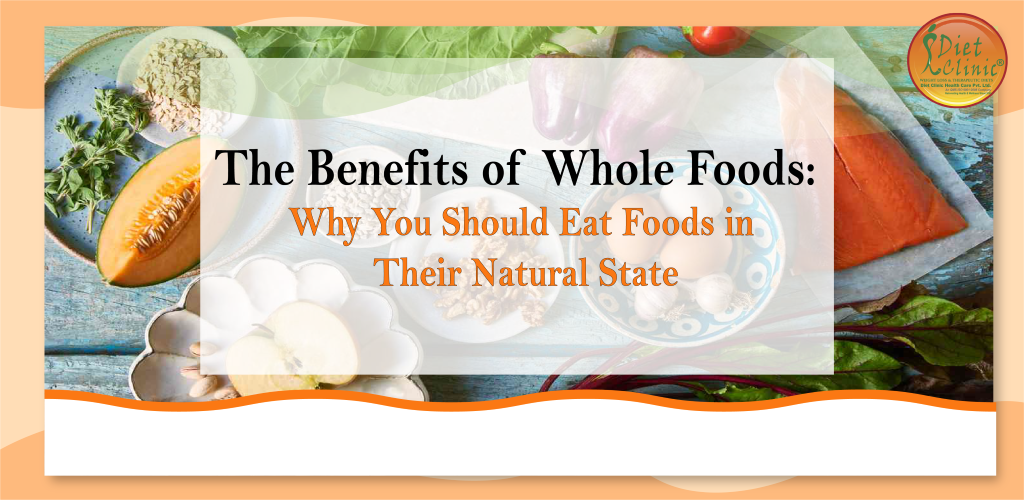
Dietician Sheela Seharawat
The Benefits of Whole Foods: Why You Should Eat Foods in Their Natural State
When it comes to healthy eating, there's a lot of buzz about whole foods. But what exactly are whole foods, and why are they so important? In this blog post, Dietician Sheela Seharwat will explore the benefits of whole foods and explain why you should eat foods in their natural state.
What Are Whole Foods?
Whole foods are foods that are minimally processed and are eaten in their natural state. This means that they are not refined, have no added sugars, and have not been stripped of their natural nutrients. Examples of whole foods include fruits, vegetables, whole grains, legumes, nuts, and seeds.
The Benefits of Whole Foods
1. Nutrient Density: Whole foods are packed with essential nutrients, including vitamins, minerals, and fiber. Unlike processed foods, which are often stripped of their nutrients during processing, whole foods provide the body with the vitamins and minerals it needs to function properly.
2. Improved Digestion: Whole foods are also rich in fiber, which helps to promote healthy digestion. Fiber acts like a broom, sweeping waste and toxins out of the body. This can help to prevent constipation, reduce inflammation, and improve overall gut health.
3. Disease Prevention: Eating a diet rich in whole foods has been linked to a reduced risk of chronic diseases, including heart disease, diabetes, and certain types of cancer. Whole foods are rich in antioxidants, which help to protect the body against damage from free radicals, which can contribute to the development of chronic diseases.
4. Satiety: Whole foods are typically more filling than processed foods, thanks to their high fiber content. This can help to reduce cravings and promote feelings of fullness, which can be beneficial for weight management.
5. Taste: Whole foods are often more flavorful than processed foods, thanks to their natural sugars and nutrients. By choosing whole foods, you can enjoy the natural flavors and textures of food, without the added sugars and artificial flavors found in processed foods.
How to Incorporate More Whole Foods into Your Diet
Incorporating more whole foods into your diet is easy! Start by replacing processed foods with whole foods whenever possible. Instead of reaching for a bag of chips, try snacking on fresh fruits or veggies. Choose whole grains, such as quinoa or brown rice, instead of refined grains, such as white bread or pasta. Add nuts, seeds, and legumes to your meals for a healthy dose of protein and fiber.
It's also important to remember that not all whole foods are created equal. Some whole foods are more nutrient-dense than others. For example, dark leafy greens, such as kale and spinach, are packed with vitamins and minerals, while white bread is not. By choosing the most nutrient-dense whole foods, you can maximize the health benefits of your diet.
In conclusion, whole foods are a critical component of a healthy diet. By eating foods in their natural state, you can reap the benefits of essential nutrients, improved digestion, disease prevention, satiety, and taste. Incorporating more whole foods into your diet is easy, and can be done by replacing processed foods with whole foods whenever possible. Remember to choose the most nutrient-dense whole foods to maximize the health benefits of your diet.










